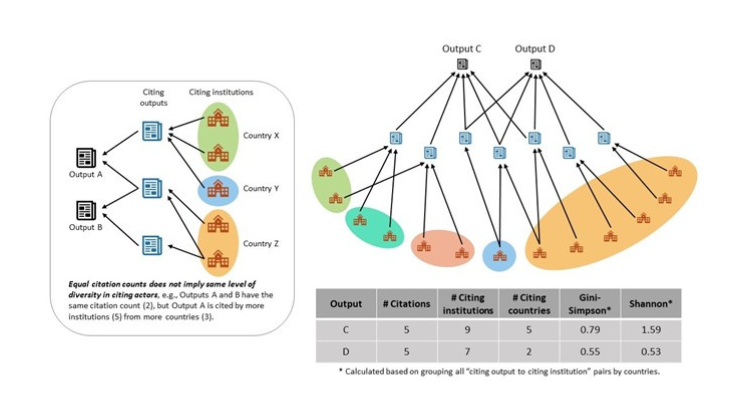As the REF open access (OA) consultation draws to a close, Anthony Cond and Peter Berkery argue that one way to ensure an equitable distribution of funding for OA books would be to use a small amount of the QR funding distributed via the REF to fund book processing charges.
Imagine a scenario in which STEM research is immediately open to all in a final, polished journal article upon publication, but humanities and social science research in its flagship longform book format becomes open only after two years and even then in an incomplete version.
Imagine the inequalities entrenched when wealthier UK institutions are able to publish immediate gold OA in pursuit of competitive advantage from increased citation and potential for impact, while less affluent universities must wait 24 months and only then share an un-copyedited, un-typeset monograph via an institutional repository.
Now consider all of this playing out in a period of unprecedented financial challenge for the UK higher education sector in which 60 universities are going through some sort of redundancy process at the time of writing and 17 humanities departments are under threat. The picture painted in the REF Open Access consultation document is a bleak one for the disciplines of the book.
Yet this period of consultation could instead be an opportunity to establish a level playing field, and one which could benefit the various stakeholders of UK research.
The foundations of a more equitable solution for sustainable open access books were laid out by Martin Eve, Kitty Inglis, David Prosser, Lara Speicher and Graham Stone (appropriately representing a range of stakeholders in the future of the book) in this 2017 UKSG Insights article.
Rather than retreading their figures built on REF2014, the value of the article is best demonstrated by applying its methodology to output types submitted to REF2021, which were as follows:
A (authored books) 11,801
B (edited books) 2,135
C (chapters in books) 9,475
R (scholarly editions) 329
Eve et al assumed a book to be composed of approximately eight chapters and proposed a resulting sum to give us the total number of ‘books’ submitted to REF: thus, we can divide those 9475 chapters by eight to arrive at a further 1184 books. That gives us a total of 15,449 ‘books’ submitted to REF 2021.
Following the article’s lead, we can use that total to calculate how much an OA REF for books might cost, but first we need a Book Processing Charge (BPC) figure. UKRI has given us a steer on what it perceives to be an appropriate fee for an OA monograph as part of its newly established OA policy, with £10K (inclusive of VAT) the ceiling. If we remove the VAT from that figure and smooth things further by using a flat £8000 for ease of calculation (although of course an exact figure will always be up for debate and would need to rise with inflation), the following sum indicates the cost of immediate gold OA for books if we assume submission levels are the same as for REF2021: 15,449 books x £8000 = £123,592,000 (£123.6m).
If we assume in turn 75% compliance to REF policy, noting that there are a number of well-documented instances in which OA will not be appropriate (such as for trade books and for those with complex third party permissions), the figure reduces to £92.7m. That £92.7m divided in turn by the seven years of a REF cycle (Eve et al use five) gives us a figure of £13.25m per annum as the cost for an OA longform REF.
To put that in context, QR funding, which is distributed to universities through the mechanism of the REF, currently stands at £2bn a year, meaning an increase of just 0.66% could deliver immediate Version of Record OA for books. In fact, that 0.66% figure may well be too high because it does not account for submissions already supported by UKRI, Wellcome and other funders, nor does it account for potential duplication between edited books and chapters in books in the crude assumptions above, or reflect the trend evident in the last REF of a switch from books to journal articles.
Anticipating concerns
This post isn’t intended to prompt a consultation of its own, but it is important to explore some of the obvious questions that arise from its central premise. This list explores some of the obvious challenges of a QR funded approach:
No research manager will welcome the thought of QR funding being used for anything other than research?
Research has shown that open access publication can lead to ten times more downloads and double the number of citations for books. Many universities have a focus on international league tables in which citation can be an important metric. There are examples in the QS rankings methodology in which international votes for some humanities and social sciences subjects can be weighted more heavily than domestic recognition in the sciences. Immediate Version of Record OA for books therefore has the potential to boost the standing of UK universities in international rankings.
It also has the potential to amplify the work of individual scholars, maximising the audience for their work and creating a potential pathway to impact, which in turn opens up the possibility of a stronger REF submission.
In short, the 0.66% spend could be to the advantage of author, institution and sector.
REF decisions are generally made close to the census date, how can we be sure that all books are compliant?
Universities already have processes to discuss potential REF submissions, moving that conversation earlier in the REF cycle may help to bring clarity for authors and research managers. Inevitably a safety net would be needed and here the imperfect embargoed green option deployed but as a secondary option for longform outputs, not as a likely primary option.
How could this ring-fenced funding be managed without significant administrative burden for Research England or universities?
One solution could be an organisation such as JISC, a skilled intermediary with considerable relevant expertise in this area. Of course the involvement of a third party may slightly increase cost above 0.66%. Another would be for universities to invest in or work with university presses – an established, academy-owned infrastructure that is committed to supporting monograph publication.
How do we avoid the perverse incentive for scale over bibliodiversity that an author-side payment model has caused in the journal environment?
The journals world is dominated by a handful of commercial publishers who publish the vast majority of journals content and consume a disproportionate share of university library budgets. Books publishing, on the other hand, has a very long tail. For example, the 12,500 titles published annually by members of the Association of University Presses are split across 160 different UPs. Authors will still be free to work with their publisher of choice.
Too expensive?
REF2021 saw submissions from 157 HEIs, meaning that £13.25m is equivalent to an annual Research England OA monograph spend of £84,394, roughly comparable with the average professorial salary in the UK, for every participating institution, although of course not evenly spread.
A covering note on Research England’s web page for the consultation states ‘Open access has the potential to make research more efficient and impactful. It delivers better value for money to those who fund it.’ Is 0.66% of QR funding too much to ask for an alternative OA future that might better serve the humanities and social sciences?
The content generated on this blog is for information purposes only. This Article gives the views and opinions of the authors and does not reflect the views and opinions of the Impact of Social Science blog (the blog), nor of the London School of Economics and Political Science. Please review our comments policy if you have any concerns on posting a comment below.
Image Credit: jd8 on Shutterstock.








How much more can open access publication increase downloads for books according to research?
That’s all very well in theory – but completely disproportional per institute… for some institutes it would actually equate to 30% of the QR funding that was received… this would also create a horrible class structure – of the “REF” outputs verses the non “REF” outputs… bearing in mind that the number of outputs per 1FTE over a now 8 year cycle is an average of 2.5 (so, as no one writes half an output, lets round that down to 2 – which could be rounded down to one book if double weighted), but what about all the other “non” REF monographs?